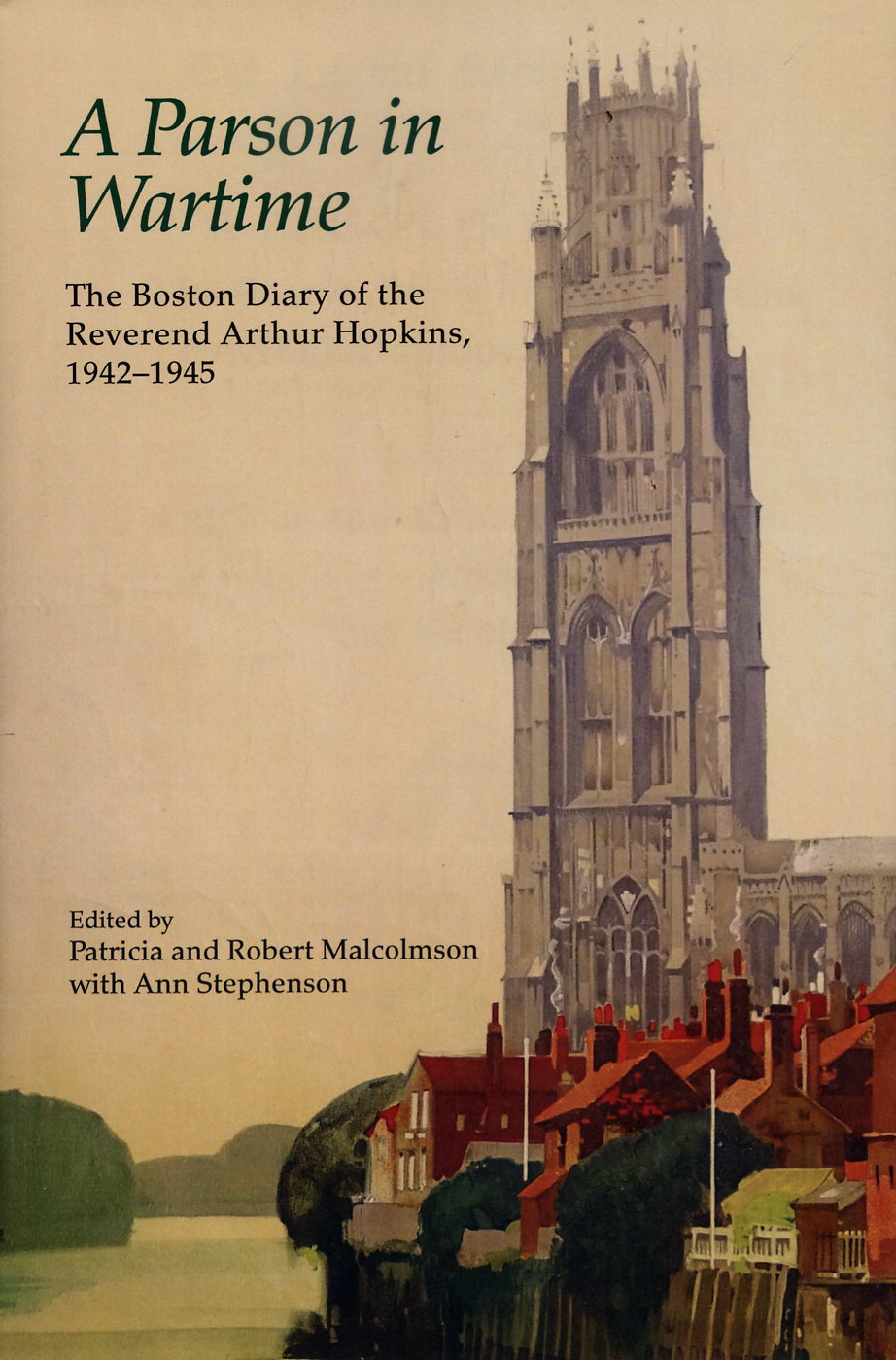
Arthur Hopkins arrived in the Lincolnshire town of Boston in November 1942 to take up the post of Vicar of St Thomas’s Church in the working-class parish of Skirbeck Quarter. He was already writing almost daily instalments of a diary for the social research organisation, Mass Observation.

Arthur Hopkins arrived in the Lincolnshire town of Boston in November 1942 to take up the post of Vicar of St Thomas’s Church in the working-class parish of Skirbeck Quarter. He was already writing almost daily instalments of a diary for the social research organisation, Mass Observation. The result is rather like a series of letters written to a dear friend abroad. In the course of his priestly duties, Hopkins regularly visited his parishioners, sharing fire-watching duties and discussing the progress of the war. He was involved in a multitude of local organisations, hospitals, schools, local clubs and societies. He had conversations with people from all walks of life, from dock workers to local politicans, from prosperous farmers to commercial travellers, from shopkeepers to busy mothers, some of whose sons were killed or missing in action. Little escaped his notice. He wrote of the prices of food and toys, of air raids, of illness and deaths, of what his fellow travellers on trains or buses were reading, of weddings and funerals. He recorded his visits to public houses and to the Wednesday market in Boston. The diary of Arthur Hopkins provides a vivid picture of wartime Boston and an engagingly readable account of the life of a busy parish priest.